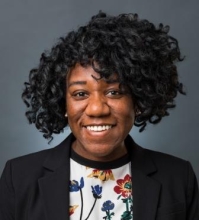
Assistant Professor
Department of Civil & Environmental Engineering
University of Washington
Abstract: Stormwater runoff is a major component of the urban water supply. Increased rainfall frequency due to global climate change impacts accompanied by growing population and urbanization in cities has resulted in higher volumes of stormwater runoff entering surface waters. Unfortunately, contact of stormwater runoff with engineered surfaces (e.g., buildings, roadways) results in elevated concentrations of trace contaminants conveyed by runoff to ecosystems, which pose risks to human and environmental health. Green stormwater infrastructure is a cost- and space-efficient approach to promote local groundwater recharge and mitigate high runoff flows over roadways; however, these systems have limited ability to remove trace contaminants in stormwater runoff. To enhance contaminant removal in green stormwater infrastructure, reactive engineered materials can be amended to passively treat infiltrating runoff. This talk will highlight our work developing a sustainably sourced activated carbon produced from pyrolysis of used coffee grounds toward treatment of urban stormwater runoff. Data will be presented regarding physicochemical characterization of the activated carbon, removal of representative trace organic compounds in urban runoff, and activated carbon modifications to target particularly recalcitrant trace organics.
Bio: Professor Jessica Ray (she/her) is the Robert and Irene Sylvester Assistant Professor in the Department of Civil & Environmental Engineering at the University of Washington. Ray received her B.S. degree in chemical engineering from Washington University in St. Louis in 2009. Upon graduation, Ray remained at Washington University in St. Louis to obtain an M.S. degree (2010, funded by the NSF GK-12 Graduate Research Fellowship) and a Ph.D. in energy, environmental & chemical engineering [2015, funded by the EPA Students to Achieve Results (STAR) Fellowship]. During her Ph.D., Ray employed surface chemistry techniques to investigate interfacial reactions of nanomaterials in water. Ray then moved to California as a Miller Institute Postdoctoral Research Fellow at UC Berkeley in the Department of Civil and Environmental Engineering. As a postdoc, Ray developed low-cost polymer-clay composites to treat urban stormwater. At the University of Washington, Ray is continuing to develop and characterize new composite materials for selective contaminant removal in water, for enhanced degradation of persistent contaminants, and for recovery of valuable species in waste streams. In recognition of her novel, interdisciplinary research addressing urban water supply and sustainability, Chemical & Engineering News named Ray one of the “Talented 12” honorees for 2020.
Share
Upcoming Events
-
MSE 298 Seminar: Mechano-Electrochemical Phenomena at Ceramic Electrolyte Interfaces
-
CBE 298 Seminar: Beyond the Tailpipe - From the Science of Soot Formation to the Engineering of Carbon Nanomaterials
-
MSE 298 Seminar: Innovation In Materials Science - An Industrial R&D Perspective
-
MSE 298 Seminar: Understanding the Impact of Grain Boundary Inclination on Grain Growth Using Modeling and Simulation and Experiments
-
EECS Seminar: Mixed Conductors for Bioelectronics
